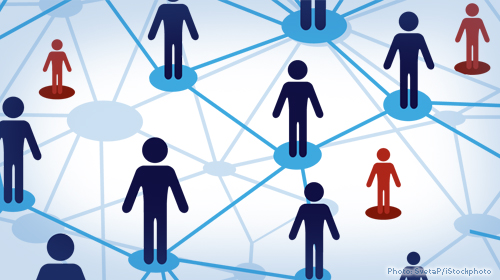
I grew up in a non-Nintendo household, and so was weaned on PC games. One of my favorites was the mayor-simulator SimCity. Launched in 1989, the addictive and soon-to-be venerable title became the first name in sleepless nights for kids with limited athletic ability.
After almost a decade, Electronic Arts released a new SimCity title last week, which has drawn critical praise for the game itself and widespread condemnation for extensive EA infrastructure issues that are preventing many purchasers of the game from playing (Minnesota Vikings punter Chris Kluwe even weighed with some colorful criticism). You see, SimCity requires a persistent broadband connection to the internet, even when playing single player, and the game's servers are having difficulty handling the load. (I should note that EA claims the always-on feature is integral to the game, though many believe it is simply a form of digital rights management, or "DRM," put in place to prevent copyright infringement and piracy.)
DRM or not, as a First Amendment lawyer for the ACLU, I find the always-on requirement (for any software that otherwise should be able to run locally) troubling for another reason: it leaves behind those without access to the internet and feeds the "digital divide." As the internet evolves, broadband access becomes ever more important for Americans to take full advantage of their First Amendment rights. As the Federal Communications Commission describes it, broadband is a "transformative infrastructure" that drives educational achievement, economic mobility and even meaningful political engagement. The continuing divide negatively impacts all of these important social benefits of maturing internet technology.
In just the past decade, broadband expansion has been dramatic. According to the Federal Communications Commission's Eighth Broadband Progress Report, vast investment in technologies like DOCSIS 3.0 and mobile LTE, and government programs like Lifeline (which subsidizes broadband service for low-income Americans), have made huge strides in extending broadband access to most Americans.
But, big problems remain:
- About six percent of Americans—or 19 million people—still lack access to fixed broadband.
- About three-quarters of that six percent live in rural America, and nearly a third of tribal residents can't get broadband.
- Only 40 percent of Americans with theoretical access actually subscribe. Many of these non-subscribers just can't afford it, and others think they don't need it or otherwise lack digital literacy.
- Up to 80 percent of schools and libraries funded through the E-Rate program—many of whom provide internet access for low-income children—say their broadband connections are inadequate.
These access and adoption divides disproportionately impact rural areas and Americans with lower incomes and lower levels of educational attainment. Unnecessarily shackling software to a persistent internet connection just exacerbates this problem. Individuals with spotty or non-existent connections might have the hardware to operate the always-on application, but the simple lack of an internet connection renders that application unusable. You might think this problem will mitigate itself with future broadband deployment, but the adoption gap is not going away any time soon, which will keep many Americans unconnected (unless we finally conceptualize broadband as a necessary entitlement for all Americans).
Also, the always-on problem is part of the larger issue of information technology moving to the "cloud"—that is, to a remote-processing, software-as-a-service model. Part of the danger of such an approach is that local computers become reliant for everyday operation on other infrastructure, which is under the control of other entities. For always-on, this raises the practical concern that the software will be rendered unusable if the software provider goes out of business. But the relinquishment of control inherent in this trend could even have far-reaching political and social consequences for traditional civil liberties.
Consider, for instance, something like dissident speech. During the Soviet era, grassroots dissident publications—known as "samizdat"—were made possible precisely because the means of their production was entirely self-contained (often produced using a single typewriter and carbon paper). The same person would create the content, make the copies and handle distribution—and thereby bypass government-controlled printing presses, copiers or typewriters. That model is rendered impossible in an age of remote-computing, where content-production on a local machine is dependent on lots of other machinery.
In any event, the SimCity controversy is unfortunate for gamers and EA alike, but perhaps it will spur a larger conversation about how to further increase broadband deployment and adoption to prevent essential services and information technology from being out of reach for the most vulnerable among us.
Learn more about your digital rights and other civil liberty issues: Sign up for breaking news alerts, follow us on Twitter, and like us on Facebook.

